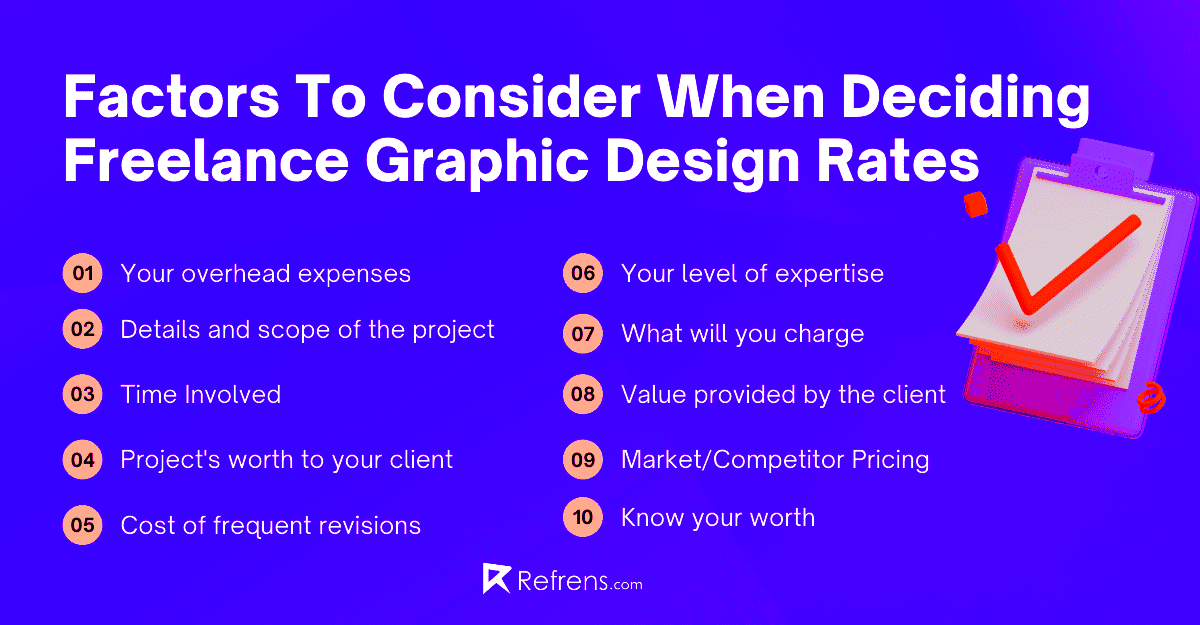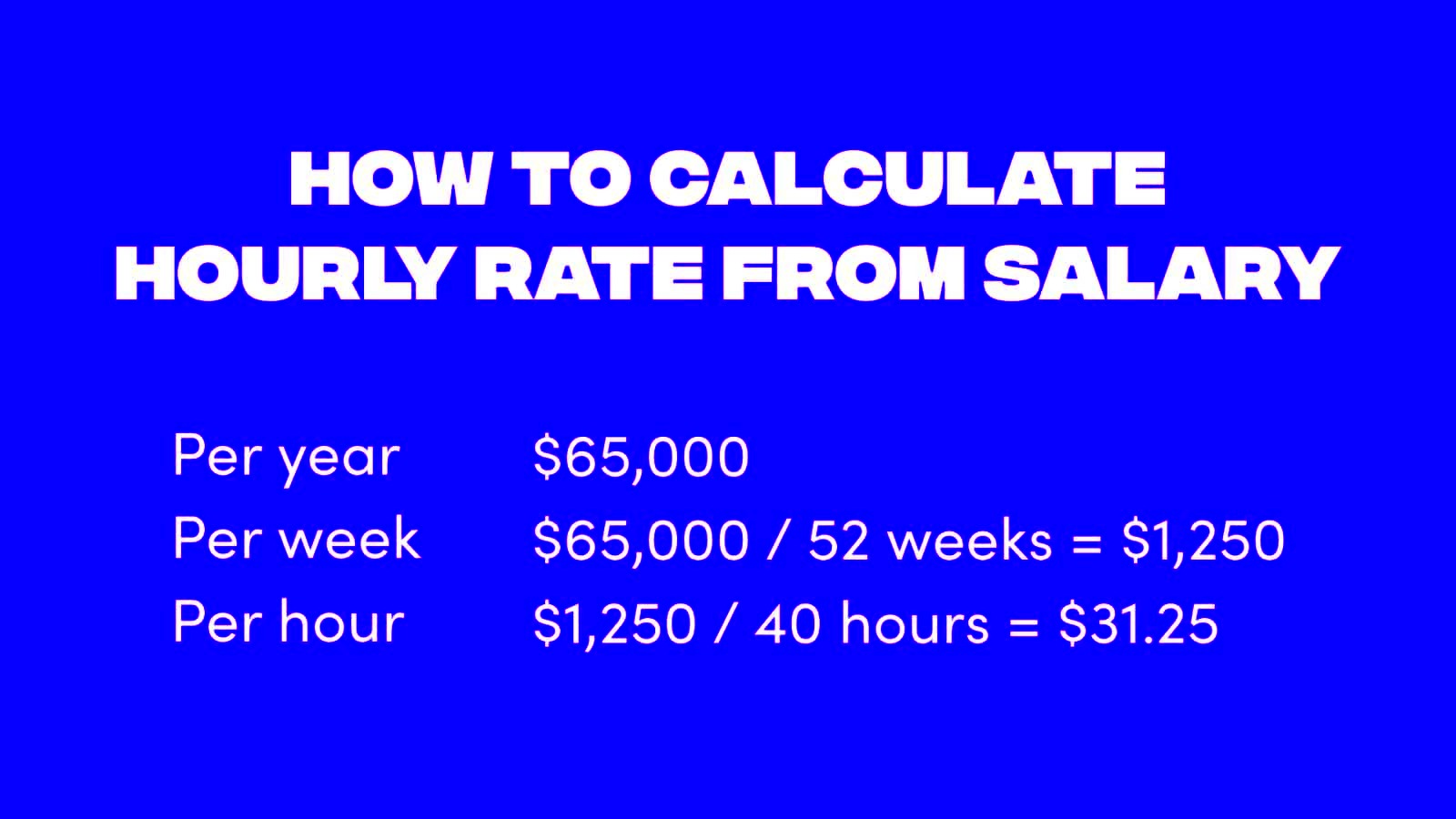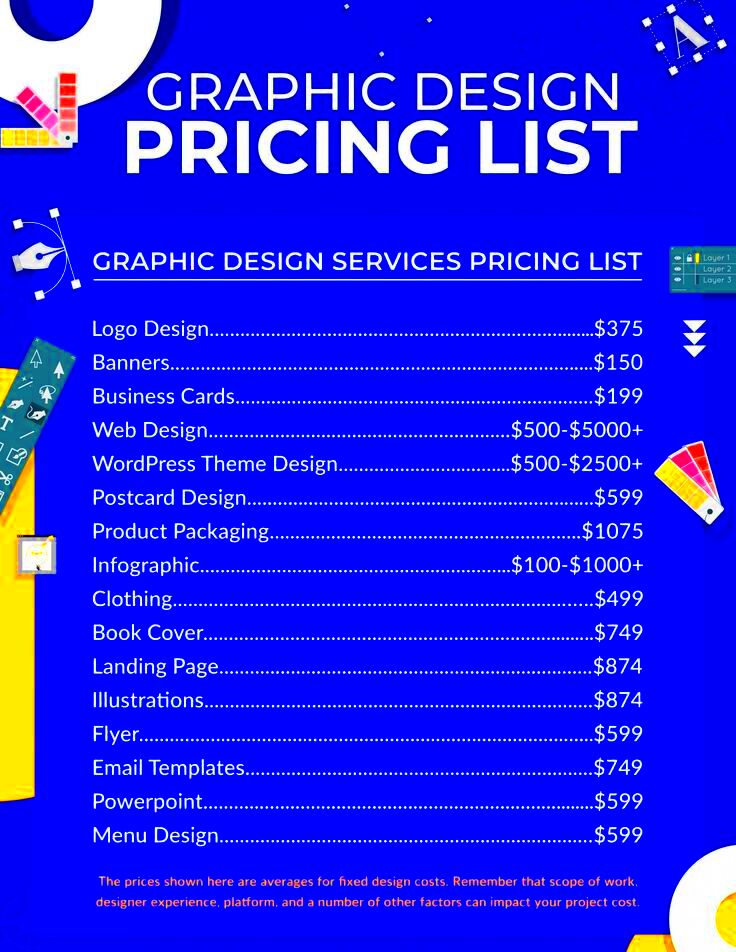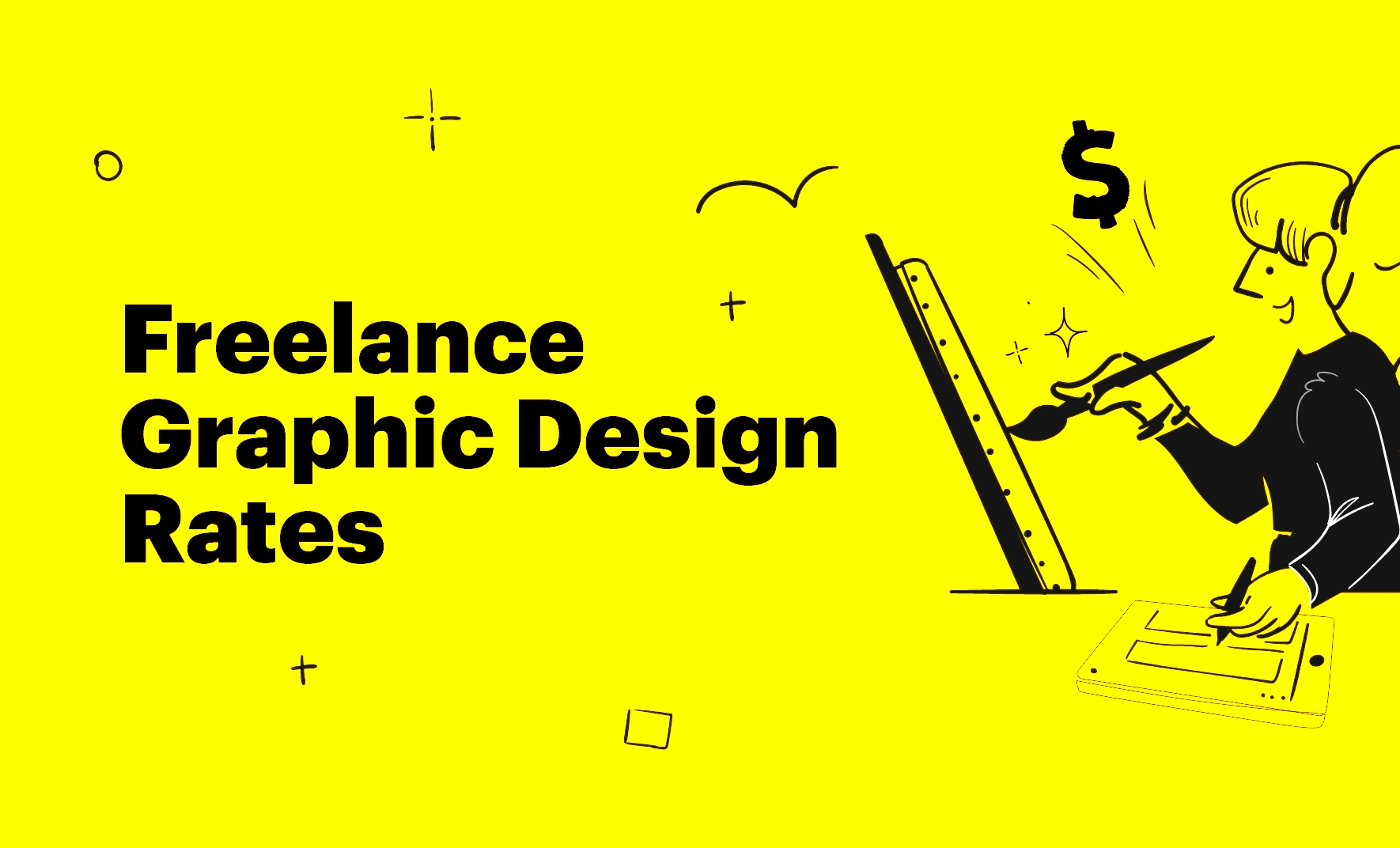Graphic design is a vital service for businesses of all sizes. As a freelance graphic designer, understanding your rates is crucial for building a successful career. Setting the right price for your services not only reflects your skills but also ensures you are compensated fairly for your work. This section will explore how to navigate the world of freelance rates in graphic design.
Freelance graphic design rates can vary widely. Some designers charge hourly rates, while others prefer project-based pricing. According to a recent survey, freelance graphic designers typically earn between $25 to $150 per hour, depending on their experience and the complexity of the project.
To establish your rates, consider factors like your level of expertise, the market demand, and your target clientele. Remember that pricing too low may undervalue your work, while setting prices too high may deter potential clients. The key is finding a balance that reflects your skills and the value you bring to your clients.
Factors Influencing Graphic Design Pricing

Several factors can impact how you price your graphic design services. Understanding these factors will help you make informed decisions about your rates.
- Experience Level: Newer designers may start with lower rates to attract clients, while seasoned professionals can command higher fees.
- Complexity of the Project: More intricate projects often require additional time and expertise, which can justify higher rates.
- Client Type: Larger corporations may have bigger budgets compared to small businesses or startups.
- Geographic Location: Rates can vary based on the cost of living in different regions. Designers in major cities may charge more than those in rural areas.
- Market Demand: Trends in design and demand for specific skills can influence pricing. Keeping up with industry trends is important.
Also Read This: What Is a Gig in Fiverr?
Different Types of Graphic Design Services and Their Costs

Graphic design encompasses a wide range of services, each with its own pricing structure. Here’s a breakdown of some common services and their typical costs:
| Service | Typical Rate | Details |
|---|---|---|
| Logo Design | $300 - $2,500 | Creating a unique logo tailored to the client’s brand identity. |
| Brochure Design | $150 - $1,000 | Designing informative brochures that effectively communicate messages. |
| Web Design | $500 - $5,000 | Developing user-friendly websites with a focus on aesthetics and functionality. |
| Social Media Graphics | $50 - $500 | Creating visually appealing images for social media platforms. |
| Packaging Design | $300 - $3,000 | Designing product packaging that attracts customers. |
These rates can vary significantly based on the designer’s location, experience, and the complexity of the project. As a freelance designer, it’s essential to communicate clearly with clients about what they can expect for their budget.
Also Read This: What Services Can I Offer on Fiverr?
How to Set Your Rates as a Freelance Graphic Designer

Setting your rates as a freelance graphic designer can feel daunting, but it's an essential part of your business. The right pricing reflects your skills, experience, and the value you provide to your clients. Let’s explore some strategies for determining the best rates for your services.
Here are a few steps to help you set your rates:
- Assess Your Skills: Take stock of your experience, portfolio, and areas of expertise. More experienced designers can charge higher rates.
- Research the Market: Look at what other designers with similar skills and experience are charging. Websites like Fiverr or Upwork can provide insights.
- Choose a Pricing Model: Decide whether to charge hourly or per project. Hourly rates are good for ongoing work, while project-based pricing can be more appealing for clients.
- Factor in Your Costs: Consider your living expenses, software subscriptions, and any other costs associated with running your business. Ensure your rates cover these expenses.
- Adjust for Complexity: Not all projects are equal. For more complex designs or tight deadlines, consider raising your rates to reflect the extra effort.
By following these steps, you can set rates that not only reflect your worth but also attract the right clients to your freelance business.
Also Read This: How to Pay for Fiverr in Nigeria
How to Communicate Your Rates to Clients

Once you have your rates set, the next step is to communicate them effectively to potential clients. Clear communication helps establish trust and sets the stage for a positive working relationship. Here are some tips to consider when discussing your rates:
- Be Direct: When discussing rates, be clear and straightforward. Avoid vague language that might confuse clients.
- Provide Context: Explain what your rates include. For example, mention if revisions are included or if there are additional costs for extra services.
- Use a Rate Sheet: Create a professional rate sheet that outlines your services and pricing. This makes it easy for clients to understand your offerings.
- Be Open to Negotiation: Clients may want to negotiate rates. Be willing to discuss their budget while ensuring you don’t undervalue your work.
- Follow Up: After your initial conversation, send a follow-up email summarizing your discussion. This reinforces your professionalism and helps avoid misunderstandings.
Effective communication about your rates can lead to successful projects and satisfied clients, ultimately benefiting your freelance career.
Also Read This: How to Share Your Fiverr Gig Successfully
Common Mistakes to Avoid When Setting Rates
When determining your rates as a freelance graphic designer, it's easy to make mistakes that can impact your business. Here are some common pitfalls to watch out for and how to avoid them:
- Underpricing Your Services: Many new freelancers set rates too low to attract clients. This can lead to burnout and resentment. Remember, your skills have value.
- Failing to Update Your Rates: As you gain experience and skills, it’s important to adjust your rates accordingly. Regularly assess and update your pricing.
- Not Considering All Expenses: Don’t forget to account for business expenses, taxes, and time spent on non-billable tasks like marketing and administrative work.
- Ignoring the Competition: Keep an eye on your competitors’ rates. Being aware of the market can help you set competitive yet fair pricing.
- Being Inflexible: While it’s important to value your work, being too rigid in negotiations can turn clients away. Be open to discussing different pricing options.
Avoiding these mistakes will help you establish a solid pricing strategy, enabling you to build a successful freelance graphic design career.
Also Read This: Curious about adding pictures in Canva? Learn the easy way!
Resources for Finding Competitive Rates
Finding the right rates as a freelance graphic designer can be a challenge, especially when you want to remain competitive in a crowded market. Luckily, there are numerous resources available to help you understand the pricing landscape better. Here are some valuable tools and websites you can use to research and determine competitive rates:
- Freelance Marketplaces: Platforms like Fiverr, Upwork, and 99designs allow you to see what other graphic designers are charging. Browse similar services to get a sense of average pricing.
- Industry Surveys: Websites like Graphic Design Salary provide salary surveys and reports that reflect the current rates for graphic designers based on location and experience level.
- Professional Organizations: Organizations such as the AIGA (American Institute of Graphic Arts) often publish resources and guidelines on standard rates within the industry.
- Social Media Groups: Join groups on platforms like Facebook or LinkedIn focused on graphic design. These communities often discuss pricing and can provide insights into current trends.
- Networking with Peers: Reach out to other freelance graphic designers. Having conversations about rates can give you a better understanding of what others in your field are charging.
By utilizing these resources, you can set competitive rates that reflect your skills and the value you offer to clients.
Also Read This: What is the Best Selling Gig on Fiverr?
FAQs About Graphic Design Freelance Rates
As a freelance graphic designer, you may have questions about how to set and communicate your rates. Here are some frequently asked questions to help clarify common concerns:
- What should I charge as a beginner? If you're just starting, consider charging lower rates to build your portfolio. Typical hourly rates for beginners can range from $25 to $50.
- How do I handle client negotiations? Be open to discussing your rates. If a client has a lower budget, see if there's a way to adjust the scope of the project rather than lowering your rates.
- Are my rates the same for all clients? Not necessarily. You can adjust your rates based on the client’s budget, the project's complexity, and the potential for future work.
- What if clients don’t want to pay my rates? If clients are unwilling to meet your rates, it might be a good opportunity to assess whether they are the right fit for you. There are many clients who value quality work and are willing to pay for it.
- How often should I review my rates? It’s a good practice to review your rates annually or whenever you gain new skills, complete significant projects, or experience changes in market demand.
Conclusion on Graphic Design Freelance Rates
Setting your rates as a freelance graphic designer is crucial to your success in the industry. By understanding the factors that influence pricing, communicating effectively with clients, and avoiding common mistakes, you can establish a pricing strategy that works for you. Remember that your rates reflect not only your skills but also the value you bring to your clients. Take advantage of available resources to research competitive rates and stay informed about market trends.
As you grow in your freelance career, don’t hesitate to adjust your rates based on your experience and the quality of your work. Being proactive about your pricing will help you attract the right clients and build a sustainable business. Ultimately, confidence in your worth as a designer will lead to better opportunities and greater satisfaction in your freelance journey.




